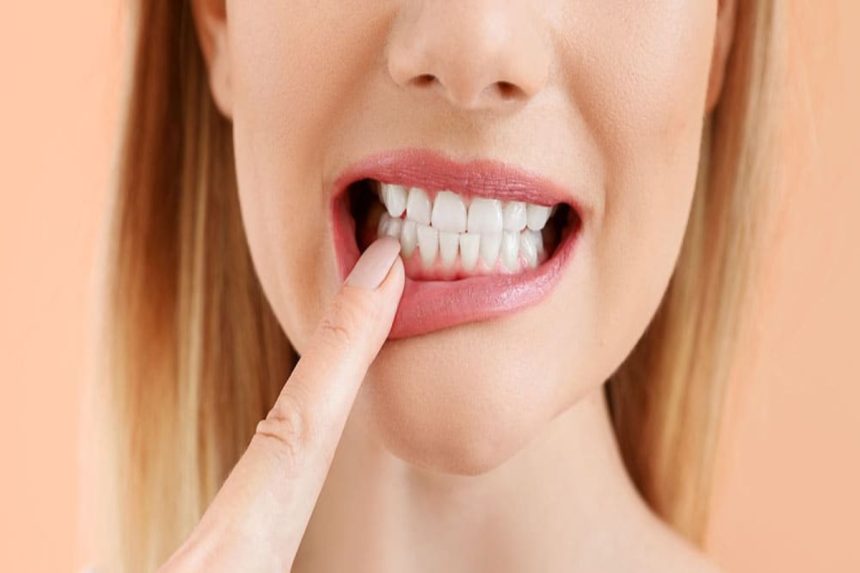Staying healthy is hard enough, but you might be sabotaging your efforts without even realizing it. Most people know about the most common mistakes: failing to eat a balanced diet and to exercise regularly. But there are also mistakes that you might be making when it comes to your teeth’s enamel.
As described by Regenerate, teeth enamel is an essential part of your body, but it remain often neglected. To learn more about enamel and how you can take better care of it, discover 5 mistakes you are making when it comes to your enamel.
Table of Contents
Not drinking enough water, which leads to tooth decay
Drinking water is essential for your body, and staying hydrated is essential to maintaining the health of your enamel. Unfortunately, people often forget to drink enough water throughout the day. This can lead to tooth decay and damage your enamel by drying it out and exposing it to bacteria. To fix this mistake, drink a glass of water whenever you can, and keep a refillable bottle with you at all times.
Drinking water with traces of minerals will also be excellent practice. If your home has distilled or purified water, you might not be getting enough minerals for your teeth, and your dentist may prescribe something for you. Your dentist may recommend fluoride treatment to strengthen the enamel of your teeth.
It is also recommended that you drink even more water when eating foods high in sugar, sucrose, or acids. Drinking enough water can help prevent tooth decay and keep your enamel healthy.
Eating too much sugar or acidic foods in your diet, which causes enamel erosion
While some sugary drinks like soda will dry out your mouth (and cause tooth decay), many common types of food such as sweets also contain quite a bit of sugar as well as other chemicals that may erode your teeth’ enamel layer over time. This is especially true for acidic foods like oranges, grapefruit, juices, and different types of fruit that are high in acidity. To keep your enamel in the best shape possible–and protect it from damage, make sure to limit how much sugar and acidic foods you consume.
It’s common knowledge that your mouth is a breeding ground for bacteria. If you often eat sweets, this will be the bacteria’s food in your mouth. They will thrive, multiply, and cause tooth decay, damaging not just your enamel but your entire tooth in the process.
Aside from damaging your enamel, eating too much of these kinds of food could also cause teeth discoloration, in which case, you may try using baking soda to clean teeth.
Some medical problems can also affect your enamel. For example, many people suffer from acid reflux and heartburn, which can bring on bad breath and damage the enamel in your mouth.
Not flossing or brushing regularly enough
To get rid of food particles that get stuck between teeth, it is important to floss after each meal. Not doing so can lead to tooth decay and loss of enamel around gumlines. It is also extremely important to brush at least twice a day with fluoride toothpaste–and make sure that you follow the correct brushing techniques to avoid cutting yourself while brushing too hard (which
Using mouthwash incorrectly when cleaning your teeth
Mouthwash can be an effective way to fight bad breath or reduce oral bacteria; however, if not done correctly, it could actually do more harm than good. Make sure to brush your teeth before rinsing with mouthwash since brushing first will remove some of the bacteria from your mouth, rinsing before brushing may decrease the effectiveness of the mouthwash. Also, make sure to rinse for at least 30 seconds afterward brushing.
Also, remember that using mouthwash shouldn’t replace brushing and flossing as some people wrongly believe. Children under six years of age aren’t recommended to use this product as it contains a high amount of alcohol and fluoride which could remain harmful if ingested.
Brushing your teeth too hard and damaging your enamel in the process
Using a soft-bristled toothbrush will help to prevent the enamel from being worn away and avoid brushing too hard. However, keep in mind that not all adult toothbrushes are made from soft bristles. If you have been using a medium or firm bristle toothbrush for most of your life, switching to a soft-bristled one could actually cause problems as well. In order to reduce the risk of damaging your teeth’ enamel when starting with a new toothbrush, brush how you usually would at first but pay close attention to how it feels on your teeth so you can adjust accordingly if needed.
Not getting enough calcium in your diet, which leads to enamel thinning
If you don’t get enough calcium, you may notice that your teeth are more sensitive than usual. This is because the enamel in your mouth has started to thin out without the proper nutrients. To reverse this and prevent even worse damage in the future it is essential to eat lots of healthy foods rich in calcium like cheese and yoghurt, or consider taking a calcium supplement if needed.
Including food rich in calcium should be a part of one’s diet even at a young age. Kids should remain encouraged to drink milk and eat calcium-rich food such as leafy greens, beans, lentils, tofu, and sardines.
Although it may seem difficult at first, caring for your enamel should be simple and easy as long as you take care of yourself and follow these tips: drink water, avoid sugary and acidic food, floss regularly, brush twice daily with fluoride toothpaste ( not too hard), and maintain a healthy calcium intake.
Your teeth contribute a lot to your confidence, so taking care of them and giving them the best attention will ensure that your self-esteem and ability to face the public confidently will not remain affected negatively.






